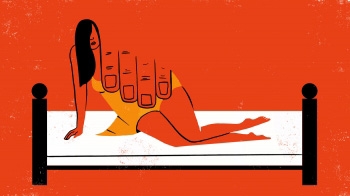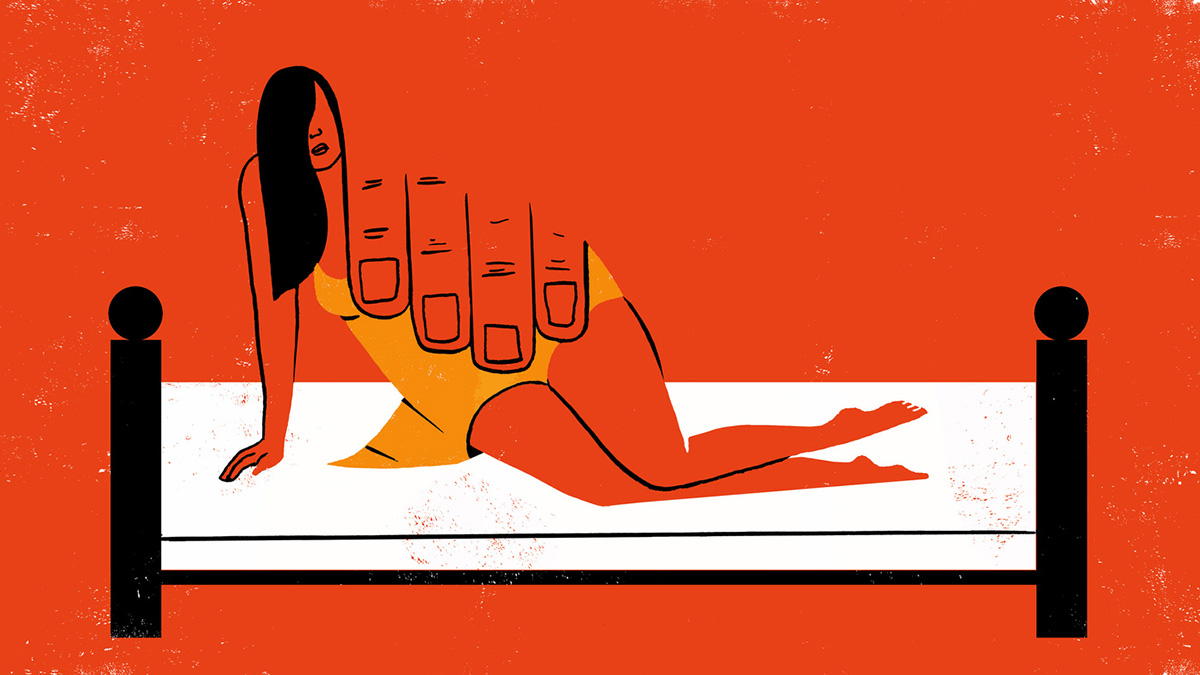
.png) Jaswant Kaur
Jaswant Kaur

March-end is akin to a new beginning, paving way for a new financial year with new tasks, targets and challenges. This time, the month seems to have spelled out a new beginning for women’s rights as well. Many celebrate March as women’s month as an extended celebration of the international women’s day. But this year has been exceptional.
While hearing a case against a man, who was accused of rape by his wife, the Karnataka High Court remarked that “rape is a rape, be it by a man or a husband.” A brutal act of sexual assault on the wife, against her consent, albeit by the husband, cannot but be termed rape... Such acts of husbands scar the soul of the wives. It is, therefore, imperative for lawmakers to now hear the voices of silence,” said Justice M. Nagaprasanna in his verdict.
The court upheld the charges framed against the husband by the trial court in Bengaluru. The single-member Bench analysed the exemption under Section 375 of the IPC as inconsistent with Article 14 of the Constitution, which guarantees equality of all before the eyes of law.
It is being considered a landmark judgement in Indian legal history as the subject has been a matter of debate for long. The staunch proponents of patriarchy believe that it is their right to have sex with their wives as per their convenience and will. The wife's consent hardly matters! In fact, marriage is generally considered a licence for men to fulfil their sexual desires.
Now what does Section 375 provide for? For a layman, it elaborates what constitutes rape. The section has also listed two exemptions. One, “medical procedure or an intervention will not constitute rape”. Two, “sexual intercourse or sexual acts by a man with his wife, not being under fifteen years of age, is not rape.”
While consent forms an important component to decide whether an act can be termed as a rape or not, it does not find any reference in the second exemption. The law has been contested in the Delhi High Court since 2015 by four petitioners -– the All-India Democratic Women’s Association and the RIT Foundation and two individuals. However, nothing substantial has happened so far. The court has reserved its judgement and is awaiting a response from the Central government, which has been dilly-dallying over the matter for obvious reasons.
Meanwhile, the Karnataka High Court judgement has certainly given a headway for changing this archaic legal provision of British vintage. Ironically, all of the countries that were under British colonial rule have revoked this provision.
A UN report titled “Progress of World’s Women 2019-20: Families in the Changing World” shows that out of 185 countries, 151 countries either have an explicit legislation on marital rape or have given rights to women to file complaint against their spouse for rape. Even the UK, where this law originated, has abolished this exception. Then why should India continue to have this regressive provision?
In the name of saving marriage as an institution in the country, many have been advocating in favour of the exemption. Perhaps they do not know how widespread this crime is? One must look at the government figures, especially those curated under the national family health survey 2019-20. Yes, no one would have thought that even the government had captured this data.
The survey reveals that a staggering 67 per cent of the men in Punjab felt that they can have “forced sex” even if their wives don’t want to. It is just an outliner revealing huge differences between various states. However, the situation is much worse when one looks at the revelations made by women.
Close to 93 per cent of the married women accepted that they have been subjected to sexual violence by none other than their husbands. In fact, their spouses were the first ones to violate the agency of their bodies. Bihar topped this list with 98.1 per cent women while Himachal Pradesh had the lowest share of 80.2 per cent, which by no means can be termed as low.
The survey also speaks about the extent of power dynamics that has come into play in day-to-day lives of women. In at least eight states, the percentage of women who hold the view that wife is not justified in refusing sex with the spouse even if she knows that her husband has a sexually transmitted disease is higher than men!
In a country where 9 out of 10 women are being subjected to marital rape, why do we still want this system to continue? What is the hindrance in changing the law? The answer could be lack of political will.
However, legal experts have another view. They are afraid of the purported misuse of law just like Section 498A of the IPC. It has been accepted by the judiciary that the law has been exploited by many women for furthering their personal interests. But should the interests of the majority of women be put at stake on the mere thought of its misuse? Will it not amount to negating the way law is used against them? Also, exploitation is generally done by those who enjoy more power and say in society. It is rare to see socially powerless and voiceless people exploiting law to their favour.
There are many others who opine that removing this exemption will throttle the sanctity of marriage, which is considered to be a life-long relationship in India. But if your wife is accusing you of rape, what sanctity will this exemption help in preserving? It only means that marriage in any case will not work for long as there is no mutual respect or a feeling of companionship left between the two. Either it will end in divorce or separation without divorce.
Legal experts are of the view that it might be really difficult for the respondent or accused to produce evidence in such cases as no one would have seen what happened behind closed doors.
In the present case, the man had not only harassed his wife but also his daughter. In fact, the woman quoted that his “lust” during her pregnancy had allegedly led to her miscarriage. Even the police investigation spoke volumes about the “demoniacal lust” of the accused husband, so it became much easier for the court to conclude and stand by the judgement of the trial court. It may not be the case in all situations.
True, implementation of the amended law might be difficult and complicated. But does it mean that it should not be changed? In fact, Justice J S Verma committee in its report had recommended the removal of marital rape immunity for men. But the law has not been amended so far.
Be that as it may, it is the duty of the legislature to find solutions to complex problems. By no means, these arguments should come in the way of justice and enforcing equality before law. The Karnataka High Court judgement should be seen as an eye-opener for the Modi government to think beyond the patriarchal mindset, age-old societal limitations and take appropriate legislative action.
(The writer, a company secretary, can be reached at jassi.rai@gmail.com)